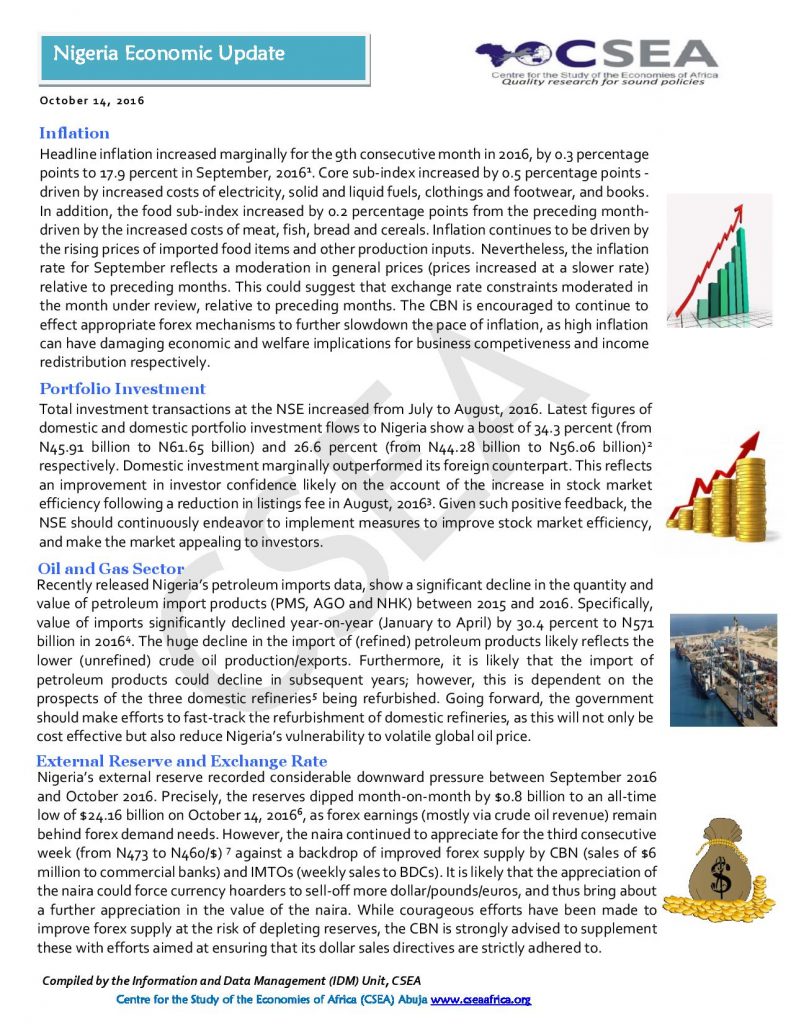Macroeconomic Report & Economic Updates

October 28, 2016
Nigeria Economic Update (Issue 44)
Recently released Nigerias
petroleum imports data, show a significant decline in the quantity and value of
petroleum import products (PMS, AGO and NHK) between 2015 and 2016.
Specifically, value of imports significantly declined year-on-year (January to
April) by 30.4 percent to N571 billion in 2016. The huge decline in
the import of (refined) petroleum products likely reflects the lower
(unrefined) crude oil production/exports. Furthermore, it is likely that the
import of petroleum products could decline in subsequent years; however, this
is dependent on the prospects of the three domestic refineriesbeing refurbished.
Related
Nigeria Economic Update (Issue 12)
The naira/dollar exchange rate remained largely stable at the parallel
market at ?320/$ during the period7, albeit slight
fluctuations on February 29, 2016 (?325/$) and March 2, 2016 (?328/$). The
decline in the hoarding of foreign currency as well as the substantial
reduction in the speculative demand for dollars were the two key factors
responsible for the ease of fluctuations in the forex market8. With the slight
increase in the price of crude oil, Nigerias foreign reserve slightly grew by $56 million, from 27.81 billion to $27.84 billion9.
With the continued increase in the price of crude oil, a modest build-up of
foreign reserve to guard against unfavourable commodity price movements is
expected in the near term.
Nigeria Economic Update (Issue 18)
Inflation
rate continued its upward trajectory in the week under review. Specifically,
the Consumer Price Index (CPI) increased by 1.39 per cent, from 11.38 per cent
in February to 12.77 per cent in March, 20161. Remarkably, this is the
highest rate since July 2012, representing a 4-year high. While both components
of the CPI rose in the period, the food sub-index was largely the main driver
of the increase in the CPI, with a growth rate of 1.39 per cent between
February and March. The persistent scarcity in petroleum products, especially
Premium Motor Spirit (PMS), has increased transportation costs and the price of
food items.
